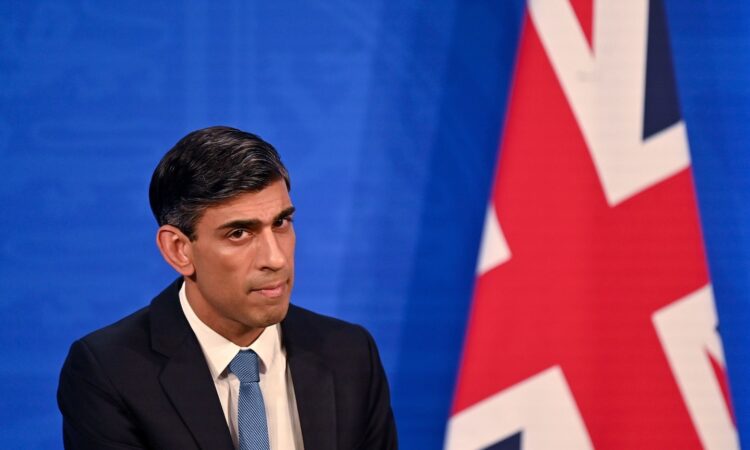
That’s a pity. If Sunak and his ministers aren’t indeed thinking about this, they should be. Brexit is a proven failure. Limiting the harm from this historic error should be their top priority.
Britain’s economy is in worse trouble than most of the EU, with higher inflation, a looming recession, stressed public services, rising taxes and dismal productivity growth. Although Russia’s war on Ukraine is driving the recession, slumping trade, weak investment and labor shortages all implicate Brexit. A former Bank of England policymaker recently told Bloomberg it has “permanently damaged” the economy. The public is increasingly of the same view.
Britain now has a stripped-down free-trade agreement with the EU. That means no tariffs or quotas. But border controls are still required as long as the UK remains outside the single market. This is threatening the Good Friday Agreement that brought peace to Northern Ireland, one of Sunak’s most immediate tests, while making things harder for companies large and small that were accustomed to trading with Europe as easily as they trade within the UK.
Ideally, you might think, Britain would just correct its mistake and apply to rejoin. Sadly, that won’t be possible for years, if ever. Even if the UK could bring itself to ask, many EU members would refuse, regarding the Brits (with reason) as too much trouble. Simply duplicating Switzerland’s arrangement also won’t fly, because that precise model has drawbacks for both sides. Yet the principle of a halfway or associate membership of the EU — a closer economic partnership than the current wreck of UK-EU relations — can and should be explored.
Full membership of Europe’s single market requires complete alignment with EU laws affecting trade and many other policy areas. Norway, Iceland and Liechtenstein are members of the single market even though they aren’t members of the EU: They apply EU rules and directives without any real say in devising them. The Swiss model is more respectful of the sovereignty that the UK wants to preserve. It’s based on a basic free-trade pact plus a raft of bilateral sectoral agreements aimed at harmonizing regulations, reducing frictions at the border and (partially) recognizing the EU’s “four freedoms” of goods, services, capital and people.
In one crucial way, this approach works well: Switzerland has a high degree of economic integration with the EU. Yet tending to this legal order consumes enormous time and effort. The EU doesn’t like it and is pushing a comprehensive “framework agreement” that would most likely diminish Swiss bargaining power. The current model might be even less to the EU’s liking if applied to the UK, which is bigger and, if history is any guide, more inclined to be awkward.
Even so, partial or associate membership of the single market would repair Brexit’s biggest defects. A streamlined version of the Swiss model, balancing economic integration and constitutional separation, could suit both Europe and the UK — and other potential partners as well. Sunak shouldn’t be ruling it out. Advancing a plan of this kind could be his most valuable achievement.
More From Bloomberg Opinion:
• Hunt’s Fiscal Repairs Won’t Mend the UK Economy: The Editors
• Will Sunak Test the Love of Britain’s Top 1%?: Therese Raphael
• Cost-of-Living Crisis Is a Slow Burn for UK Consumers: Andrea Felsted
The Editors are members of the Bloomberg Opinion editorial board.
More stories like this are available on bloomberg.com/opinion






